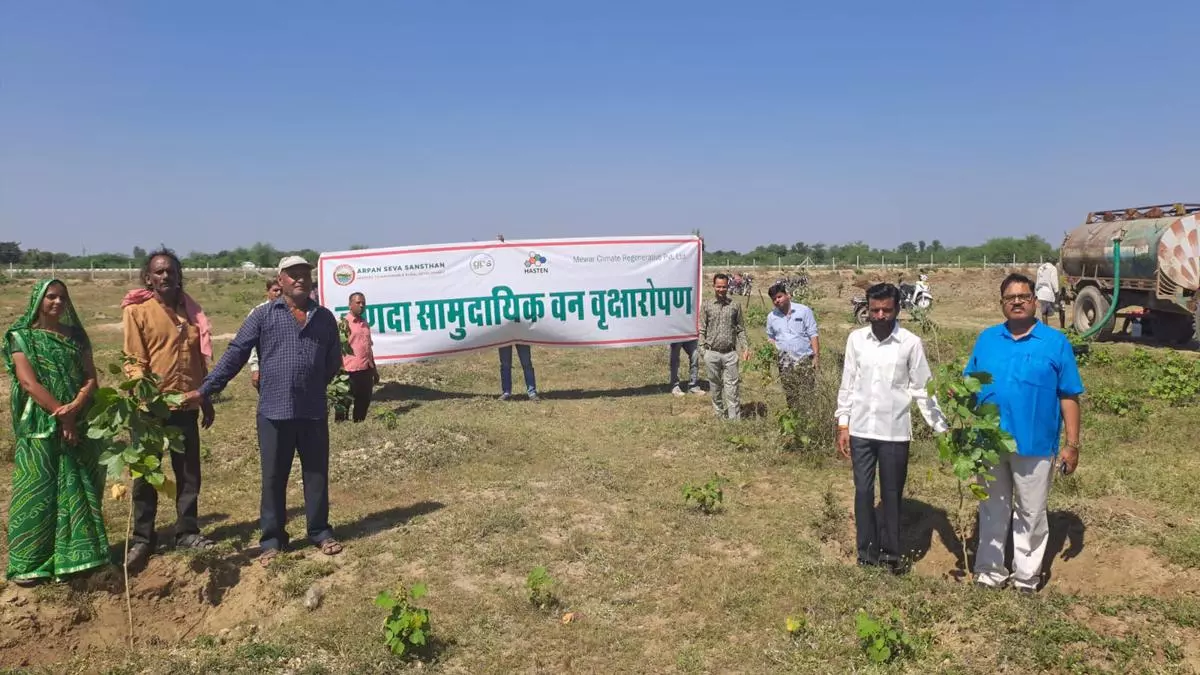GPS Renewables partners Hasten Ventures to set up decarbonisation project in Rajasthan
Biofuel firm GPS Renewables has partnered with Hasten Ventures to introduce “Regenerative Circular Bioenergy System” in Rajasthan that combines forestry and bioenergy, representing a significant step towards addressing critical climate challenges. This project, set to be executed in Junda Village, Jaipur, Rajasthan, addresses all three pillars of sustainability, including environmental, financial and social sustainability.
The project has already been kickstarted and the goal is to plant 16,000 saplings across 50 acres, GPS Renewables said in a statement.
The Regenerative Circular Bioenergy System (RCBS) is built on three core principles – Regenerative, Circular and Bioenergy. The regenerative principle focuses on the revitalisation of ecosystems rather than depleting them. The project will focus on using degraded lands for climate impact, and in the process restoring them.
Harnessing biomass power
Enabling a circular economy by recycling nutrients, utilising manure from the CBG (Compressed Biogas) plant to enhance cropland fertility and providing feedstock for the bio-CNG plant, which generates clean energy. Under the bio-energy principle, the project focuses on harnessing the power of biomass to produce energy.
The RCBS system comprises three key sub-systems that work together to achieve a net-negative carbon impact. A significant forest cover will be established on community lands with a focus on improving local biodiversity and achieving carbon sequestration at scale. Forests provide valuable ecosystem services which are beneficial for local communities.
Among others, this subsystem will enhance soil fertility, improve water availability, and create a favourable microclimate for nearby crop plantations. The cultivation of Napier grass not only supports local communities but also ensures a year-round supply of feedstock to the adjacent Bioenergy plant. The Bioenergy plant produces green biogas, generating clean energy. Simultaneously, it promotes nutrient recycling by using manure from the CBG plant to benefit crop plantations.
The climate impact is two-fold with forestry resulting in sequestration of carbon and the CBG plant output directly substituting use of fossil fuels.
Commenting on the project, Mainak Chakraborty, CEO and Co-Founder of GPS Renewables, said, “A first-of-its-kind concept, GPS Renewables is pioneering a uniquely designed decarbonisation project that leverages a combination of forestry and bioenergy to establish a self-sufficient regenerative ecosystem. By integrating the two, our aim is to not only enhance climate impact but also empower local communities. This project addresses the crucial pillars of environmental, financial, and social sustainability.”
Going beyond sustainability
“The RCBS underscores our commitment to sustainable bioenergy solutions. We believe in partnering with like-minded organisations like Hasten Ventures that are focused on finding new ways to address climate change to create a greener and more sustainable future.” Mainak said
Pradyot Porwal, Co-Founder and CEO, Hasten Forestry India, said, “The RCBS system is a key step to go beyond sustainability and embrace regenerative economic models. In order to tackle climate change, businesses will have to proactively invest in creating a positive nature-impact. We are glad to partner with pioneer organisations like GPS Renewables to help create a win-win situation for the climate and the local communities in a responsible manner.
Other project partners include Arpan Seva Sansthan, a nonprofit organization that will focus on facilitating communication with local government bodies and farmers. Envint, serving as the social impact assessment partner, will contribute valuable insights. Furthermore, Tamil Nadu Agricultural University will collaborate on designing experiments related to feedstock trials.
